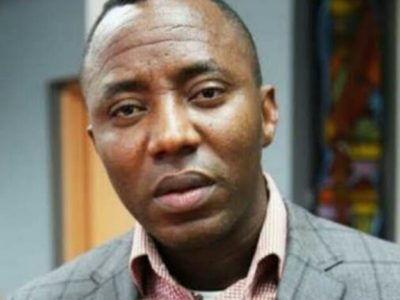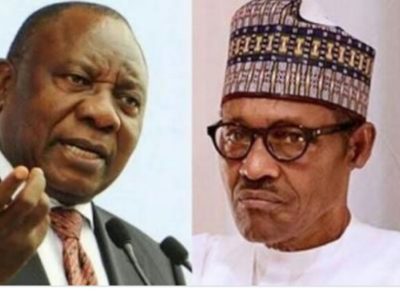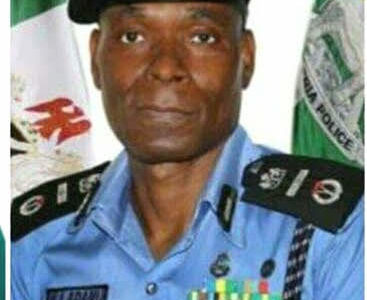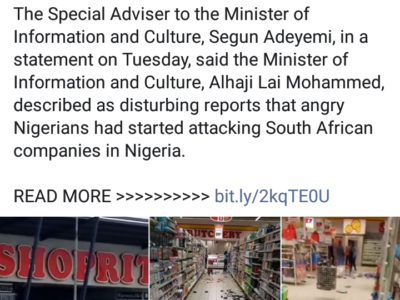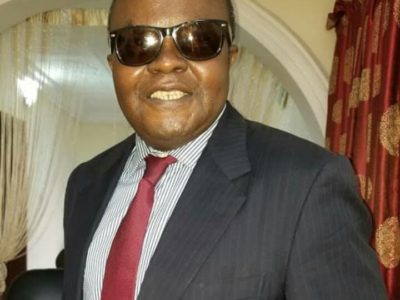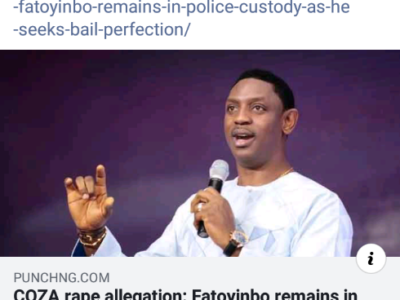Sowore’s case: DSS learns from past practice
Before I go further, let me state that DPA opposes the fact that any agency of Nigerian government could detain a person beyond 24 hours without charging him. Such practice violates our constitution and sets back human civilization.
Having said that, let's address the reality of Sowore's forthcoming court case. On 22nd September will be 45 days after Justice Taiwo granted the DSS leave to detain Sowore on suspicion of treason and terrorism. On 21st of September, the court will review the matter. There are the following possibilities:
1) The DSS will choose to do nothing further and just release Sowore on or before the expiration of the 45 days:
DSS will not take this option because it means that Sowore can sue them for unlawful arrest and detention. He will argue that there was no legitimate reason to arrest him, as DSS ultimately admitted by releasing him without charging him. Besides, it will create a precedent DSS hates to have. That is: it will suggest that the noises and protests by Sowore's friends had effect on DSS. On their part, DSS wants Nigerians to believe that they are too powerful to mess with, which is sad and unfortunate.
2) The DSS will apply for an extension of the 45 days:
This will be DSS's weakest but obvious option because they will have to show why they could not complete the investigation and why they need extra 45 days. Justice Taiwo is about the toughest judge that DSS will face in Abuja. He is new to Abuja. He is extremely intelligent. He recently rejected extradition request by the US through the EFCC. And in another case by DSS, which has been pending for the past 5 years, which was reassigned to Taiwo, the judge granted bail over vigorous opposition from the DSS. So, unlike other judges, Justice Taiwo does not fear DSS. (Not yet). So, they have to work hard to satisfy him with their legal argument.
But my assessment is that with a good effort, DSS will prevail. The legal threshold for detention under the Terrorism Act is very low. All that DSS needs are some unverified claims that Sowore was planning to engage in some terrorist acts. A picture of him and the leader of IPOB plus any statement calling for a revolution will be enough to cross that threshold. Because IPOB is a "proscribed" organization, and because Nnamdi Kanu is, as far as the courts are concerned, a person on whom a bench warrant lies, the court will interpret any association with Kanu negatively. You just need to understand why and what the law sought to achieve by proscribing IPOB. The goal was to isolate IPOB and make it unlawful for people to associate with it. So, when a man calling for a revolution is seen with the IPOB leader, the implication should be obvious.
So, extension will be granted to DSS to detain Sowore for another 45 days period, if DSS chooses that option.
3) The DSS will file charges against Sowore at the expiration of the 45 days:
With this option, Sowore will be arraigned and remanded in one of the Abuja prisons (correction facilities) unless the DSS succeed in having him remanded in their own facilities.
This is the option DSS may not want yet. Once Sowore is remanded in regular prison, he may have access to telephone. Any unregulated access to the outside world means that Sowore who already has his Sahara Reporters will try to use that platform to attack those whom he feels engineered his predicament. DSS will not want that.
They learned important lesson from their experience with Nnamdi Kanu. IPOB grew stronger while Nnamdi Kanu was detained in the regular prison. They have avoided detaining Dasuki and El-Zakzaky in regular prison. So, if they charge Sowore next week, they will seek to continue to remand him in their facilities. They will not like Sowore to repeat what Nnamdi Kanu did - use his period of detention to increase his following.
On the question of bail: DSS will successfully oppose Sowore's bail application. They will try to show that Sowore has the capacity to temper with witnesses and interfere with investigation. What you must know is that during those years Sowore was using Sahara Reporters to extort money from people and blackmail them, every law enforcement agency in Nigeria had a file on him. DSS had a file on him. But nobody could reach him then because he was in America. Those files grew cold when Sowore became the mouthpiece of the APC against Jonathan and his PDP. But those files are being reactivated now. So, Sowore's old victims are resurrecting and they will be calling the leaders of DSS with their complaints. So DSS will be doing some people a favor by not letting Sowore out soon.
So, bail will be denied. They will consider him too dangerous to be free on bail. Besides, he can escape back to America and return to his old ways of attacking from outside the country.
How will this help Sowore? Naturally, once the public feels that a person has suffered or has been punished more that he deserved, that person becomes a hero. If Sowore is detained for 3 years, there will be massive public sympathy for him. He will become a hero and then more mature and more eligible to run for a serious position such as House of Rep for a constituency in his Ondo State.
In slightly more than one week, Sowore's case comes up again. Femi Falana's motion to vacate the initial order shall have become moot or overtaken by events because the order he is seeking to vacate has expired on its own force. Falana should be fighting now against the future measures from DSS and the courts.
The lesson of Sowore case must be learned again. The Nigerian State is deeply repressive. When you take on the Nigerian government or any of its agencies, prepare for a drawn-out battle. Never count on those initial noises that will be made by the likes of Soyinka and Falana. Those noises disappear after the first two weeks.
If Sowore needs to be free soon, his solution is outside the courts. Nigerian courts are largely slaves to the executive arm of government. Sowore, though an Ijaw person of Ondo extraction, has been accepted by some vocal Yorubas as one of them. Hopefully, they can pull their political strings to get him some soft landing.
Another angle to view the xenophobic attacks on our people
EDITORIAL
The best way to protect Nigerians from all kinds of oppression abroad is to give them a life within Nigeria that is better or equal to what they can have abroad.
As long as we have in Nigeria every manner of hardship, misery, poverty, persecution and injustice, Nigerians will be forced to leave Nigeria in large number. As millions of Nigerians flee the country in search of refuge in countries better managed than ours, they will put pressure on the resources of those countries who gradually begin to resent our people's growing presence in their land.
South Africans know that Nigerians coming to live in South Africa were mostly those escaping oppression and injustice and unemployment, while South Africans coming to Nigeria are coming with their investment capital. It is not the same. If you kill a Nigerian family in South Africa, no South African suffers. But if you burn down Shoprite stores in Nigeria, many Nigerians will lose their employment, which forces more of them to migrate to South Africa where they will be killed.
As we fight xenophobia in South Africa, we must not forget the root cause of it. Let those who rule Nigeria create a country that millions of South Africans will like to come and live in. Let them create a country that many Nigerians will not need to run away from. And xenophobia against Nigerians will stop. It is indeed naive to assume that the presence of Shoprite in Nigeria is the same as the presence of a Nigerian worker in South Africa.
When you set your house on fire and force your family to run to the house of your neighbor for shelter, time shall come when your neighbor will ask your family to leave. Countries who make their citizens unsafe are putting pressure on other countries. We must address that too.
I will not like to be a neighbor to Nigeria without building a tall fence. I can tell that sooner or later, Nigerian government will drive their citizens across the border into my space and that will cause me trouble. When your neighbor refuses to feed his children, that may cause you to use food meant for your children to feed your neighbor's neglected children, thereby depriving and impoverishing your own children. Who does that?
President Ramaphosa does not regard President Buhari highly
Cyril Ramaphosa, President of South Africa, though a clever and experienced politician and the leader of the second biggest African country, will not have much respect for the President of Nigeria.
Just like in all situations, when you deal with a group, you have to look at the internal dynamics within the group to assess its strength and weakness. A president could be powerful as a person, while his country is weak. A president is powerful as a person, if he is above the laws of his country. A country is powerful as a country if its president is subject to the laws of the country. The more personally powerful a leader is, the weaker his country is.
President Buhari is above the law of Nigeria, so Nigeria will remain a weak country as long as there is a human being within the country that is above the law of the country. In South Africa, their president is not above their law. Last two years, they forced their president (President Zuma) to resign. This year, President Buhari presumably rigged himself back to power.
Look at Nigeria!
(1) President and his men are above the law.
(2) Opponents of the president have no protection under the law. Even the Chief Justice of Nigeria could be persecuted.
(3) There is no separation of powers and no supremacy of the constitution. The head of judiciary could be removed by the president without recourse to the constitution.
(4) For six months after becoming the president in 2015, President Buhari refused to appoint ministers. During that time an Irish company was getting free judgment that ended up costing Nigeria 9 billion dollars.
(5) Nigeria is the only country to lose 9 billion dollars in a phony judgment
(6) Nigerian President is too old. He knows nothing about the internet or information technology.
(7) Nigeria has a president whose school certificate may have been fake.
(8) Nigeria has a president whose electoral victory is still disputed in court.
(9) Nigeria is a country where judges are arrested, detained and released on the order of the President.
(10) Nigeria is a country where herdsmen keep killing people without them getting arrested.
(11) Nigeria is a country where soldiers shoot and kill policemen on duty and set suspects free.
(12) Nigeria is a country whose soldiers run from insurgents.
So, if you are the President of South Africa and you are to deal with Nigerian President, what will you think of him? Honestly speaking, I won't take Nigeria and their President seriously. There is nothing they can do even if their citizens get killed in our country. After all, aren't they killing more of them in Nigeria.
Nigerians should bear this in mind when dealing with South Africa. Nigeria has no muscle to flex against South Africa. Nigeria should just beg.
Breaking: as if a curse follows the Nigerian police
Daily Trust reports that three police men, suspects die in motor accident.
According to Daily Trust, "Three police officers said to be working under DCP Abba Kyari and some arrested suspects have died in a ghastly motor accident few kilometers from where three police men were killed by soldiers along Ibbi-Wukari road in Ibbi local government area of Taraba State at about 6 pm, on Monday."
It was the same IRT unit headed by DCP Abba Kyari, which lost 3 policemen to soldiers' bullets last month.
Daily Trust’s finding revealed that "the police officers were escorting the suspects to the Area Command in Wukari when the driver of the police vehicle they were traveling lost control and somersaulted".
An eye witness, Mallam Kasimu Dauda, told Daily Trust via Telephone that the accident occurred at a village few kilometers from where the 3 police men and 2 civilians were killed by soldiers last Month. He said the victims were part of DCP Abba Kyari’s team that came to Ibbi, following the killing of 3 Police men and 2 civilians and were left behind to conduct further investigation in the area. Mallam Kasimu Dauda said the victims were escorting the suspects and some guns recovered in the area when the accident happened.
The police spokesperson in the state, DSP David Misal, who confirmed the incident via a text message to Daily Trust reporter, however said only one police man died in the accident. He wrote: “A vehicle with some police detectives, on special investigation, along Ibbi-Wukari road had a fatal accident as a result of bad tyres and it led to the death of a police officer while others sustained injuries and are currently receiving treatment”.
A big disappointment to Africa
The South African government has been a disappointment to Africa, just as Nigeria. But let's talk about South Africa.
In the 70s and 80s, Nigeria led the world in the fight to end the white supremacist regime in South Africa, known as the Apartheid. Then Nigeria still had the muscle to flex in the continent, not now that Nigeria has become a mockery.
It was natural, therefore, that upon the end of Apartheid, Africans would be hopeful that South Africa, led by former freedom fighters, would be a blessing to the continent. But unfortunately, the reality has been the opposite. The post-Apartheid South Africa has been a terrible let-down. It has been like an elephant giving birth to a mouse.
Nowhere else has this been more demonstrated than in the xenophobia that has gripped the South African society for a number of years now. That the South African civilian population, particularly the blacks, would be attacking and killing black African immigrants in their country must be blamed on the Government of South Africa. The black leaders of South Africa have failed the basic test of leadership, which is a terrible irony.
If the South African leaders were not like drunken idiots, they would have known the long term implications of these xenophobic attacks. For one, South Africa will not be able to attract sufficient black immigrants it would need to soften white domination of their economy and their professional class. Second, it will trigger return hatred of South Africans in other African countries, thus denying the South African economy the opportunity to expand into markets within the continent.
The evils of xenophobic violence in South Africa was mildly revealed yesterday when Nigerians retaliated by attacking and looting South African businesses in Nigeria, often their biggest markets in the world. That hopefully will send a message to South Africa. No group will fold their arms and watch their kit and kin slaughtered senselessly with impunity. And as the South African police are too nice to those killing Nigerians, let Nigerian police borrow that gentle disposition when dealing with Nigerians attacking South African businesses.
Despite all this, the situation is not out of control yet. The two governments should double their efforts. The emphasis should not be on how to avenge the Nigerians killed. Rather, it should be on how to protect thousands of Nigerians still in South Africa, who need to remain in that country. Also, since not every African country has the clout as Nigeria, it will be proper for Nigeria's effort to aim to end xenophobia against all Africans in South Africa. There must be an end to these spates of violence.
The process will not be complete unless there is justice for the victims of the past and present attacks and punishment for people known to be involved in the attacks. For those, whose shops were looted or who lost their relatives in these attacks, there should be adequate compensation to be paid by South African government.
Both governments must understand that both the xenophobic violence in South Africa and retaliatory violence reported in Nigeria are as a result of government failure to act preemptively.
(The picture below came from Punch Newspapers showing one of Shoprite Stores looted in Nigeria in relation to xenophobic violence in South Africa).
Now my personal opinion on Bobrisky by Dr. Greg (a Rambo)
Every society has its established customs and standards of acceptable behavior. Their cultures and norms took decades and centuries to form, and once formed it takes decades and centuries for them to disappear.
The age of the internet and social media has brought the world closer and cultures of one society become easily enmeshed with the cultures of other societies. Just as religion was used to spread the cultures of the more powerful societies to the weaker societies, technology is today being used to spread the western cultures to the weaker countries of Africa. Indeed, the African cultures are being rapidly overwhelmed by the influence of foreign cultures.
Naturally, societies and cultures will try to resist external influences. But as history has repeatedly shown, the culture that is backed with superior military power, more advanced technology and greater economic power will prevail over the cultures of those of the weaker powers. It is not a matter of which culture is superior. There is nothing like superior or inferior culture. It is all a matter of power and effectiveness. The creation myth in the book of Genesis is not superior to the legend of Odudua, which is Yoruba equivalent of Genesis. But the Yorubas lacked the means of getting other cultures to accept their creation myth. In fact, they lacked the power to retain their own myth and save it from those who came with the Bible and Koran.
It is against that historical background that we must analyze the role of Bobrisky and the role of the Nigerian police and officials. You must accept that both are agents of history or the instruments through which the historical process of clashes of cultures manifest in this instance. To understand this, you must first stop being emotional about it. Understand that the individuals involved now are mere vessels through which something greater is taking place. When Bobrisky began to experiment with dressing like the opposite sex, he wouldn't have known it would take him so far. And nobody in government knew he could become famous in the process.
The problem in culture clashes is that the new culture is always impatient. It comes in a little too early and the old culture lingers a little too long. Bobrisky is guilty of arriving too early on the stage and the Nigerian authorities are guilty of taking too long to accommodate the new. Bobrisky will fight with the weapon of his constitutional right to be different in his personal and private life. Your rights to dignity and privacy include your right to dress as you like. And the authority will come armed with the laws that are used to regulate culture, customs and morality.
The surprising thing, however, is that the Nigerian authorities have refused to identify the specific laws that Bobrisky violated. The closest they came to that was that his planned birthday party would amount to breach of peace because "those offended by his lifestyle might object to his party". Quite a lame excuse! Why didn't they offer to provide security to Bobrisky then? Instead of using clear legal basis to pursue, Bobrisky, they are inciting public outrage against Bobrisky. That means that the government is using mob and jungle justice against Bobrisky.
Did you get that? Did you try to think about that or did you just get emotional and react emotionally? Why didn't they arrest him? Because they have no particular offence they could point to. Why did they not charge him to court? The same thing. So, they decided to mobilize a jungle justice squad and a culture and morality police force against him.
For the avoidance of doubt, it is not an offence for a man to dress like a woman and it is not an offence for a woman to dress like a man. (But the police occasionally arrest women in Abuja for dressing in trousers (ie like men) same allegation against Bobrisky). It is not a crime for a man to wear wig or for a lady to have low cut. None of those things done by Bobrisky is a crime. They tried to link him to homosexuality. But they have no evidence. All they have are innuendos. The police carefully avoided arresting Bobrisky because they knew he will sue them successfully.
By the way, why is the Nigerian police selective in law enforcement? Aren't they supposed to enforce all the laws? What about the law against kidnapping? What about the laws against terrorism and banditry? They left those and chose the soft target. The same police that are so eager to protect your culture is not interested in protecting your lives? And you are falling for that, just like a zombie. Good luck.
Bobrisky should be commended for his courage in risking public outrage to express himself differently. He is also a talented entertainer. We just hope his sense of timing would not get him into more trouble.
What crime did Bobrisky commit?
On 30th August, 2019, a team of police officers from Lagos State Command invaded two locations in Lagos where Bobrisky, a famous cross-dresser, was to have his birthday events. The aim of the police was to disrupt the events and prevent the intended party from holding. And the police succeeded. This leads DPA News to ask questions.
What crime did Bobrisky commit under Nigerian law? None! If he had committed a crime, a court would have issued a warrant for his arrest, he would have been arrested and he would have been charged to court. That is what the law says. But none of this could happen because Bobrisky committed no crime and had no intention to commit any. He threatened no crime and there are no real victims that were injured by him.
The only problem is this: If one takes Bobrisky seriously, one will find that he has an unusual lifestyle - which is a man dressing and looking like a beautiful woman. However, if one does not take him seriously, one will find him an interesting entertainer who creates fun and amusement by acting harmlessly in an unusual manner.
Bobrisky did not commit a sexual offense. He did not have sex in public, which would have offended the anti-decency laws. He did not engage in public nudity. He did not have sex with either man or woman which would have raised the issue of prohibition of same-sex romance. We do not even know whether Bobrisky has a lover or not. So, what offense did this man commit that warranted, not his arrest, but denial of opportunity to have his birthday party?
What is clear is that one government official has become a zealot and has turned himself into a moral police to judge how we should feel about others' private lifestyle. If we allow Mr. Otunba Runsewe to do this and get away with it, his brand of moral crusade will get to a point where women will be stopped from putting on trousers because that means they are dressing like men, and worse.
What this case shows us is that whatever government office Mr. Runsewe is representing has no further relevance and should be shut down to save taxpayers money. And one hopes that Bobrisky will approach the courts to enforce his rights.
Who is the real threat: Bobrisky or Otunba runsewe?
In light of the following story in the media, we were forced to ask the captioned question.
Bobrisky will no longer be allowed to practice his "Girlish & Mumu Lifestyle" in Nigeria, as public official nabbed his activities "A National Disgrace"
Director-General of the National Council for Arts and Culture, Otunba Olusegun Runsewe, has vowed to deal with popular Nigerian male Barbie, Okuneye Idris Olarenwaju, widely known by many as Bobrisky.
He made the disclosure in an interview with Vanguard. According to him, Bobrisky will not be allowed to practice his ways anymore in Nigeria. His words; Bobrisky is a national disgrace. He started by selling and using bleaching creams, now, he has grown boobs, bums and hips.
If a Bobrisky is doing well with his immoral lifestyle, how do you convince Nigerian youths to do the right thing? Bobrisky has the right, but not within the Nigerian environment.
There are others like him, but they live outside the country. If we don’t address Bobrisky as early as possible, he will form a team that will spread like wildfire.
This will result in a lot of suicide cases, because the typical Nigerian parent would not want to see their child become a Bobrisky.
It’s not an entertainment issue, it’s a war to save Nigeria for a better tomorrow. If you start this kind of war, you are bound to be attacked.
”My job is to preserve and protect the culture of this country. It would be unfair for me to be silent on this. You now find male prostitutes by the roadsides.
A popular Nigerian recently paid an unexpected visit to his son in England only to discover that the son is a gay leader. The man was brought back to the country on a wheelchair.
I’m talking with the strength of information and authority. I have information that over twenty-three Nigerian boys are already starting Bobrisky’s brand.
Immediately we started the war, they pulled out because we are going to get them arrested. They cannot destroy this country."
When you meet Emeka Ugwuonye, what will you say to him?
I had to present this question to our members. Yes, you will see Emeka Ugwuonye again soon. If you know Nigeria's legal system, you will understand what happened. He attacked the Nigerian police the way nobody does from within the country. Ugwuonye was determined to expose the evil within the police.
They warned and threatened him. But he didn't stop. When he tried to expose the billion naira industry behind the Abattoir secret prison in Abuja, he went too far. The option was to assassinate him or to find a less messy way to get rid of him. The only way they knew was to charge him with murder and armed-robbery on the same case he accused the police of cover-up. How smart!
Emeka knew the police would try that because they warned him. But it was good they chose that option instead of assassination. A police prosecutor warned Mr. Tosin Ajaomo, one of Ugwuonye's lawyers that they would charge Ugwuonye with the murder of Chacha if he kept accusing the police of cover-up in the case. But the DPA Founder laughed it off. He said he never thought the police could be that daft. He knew the police could try something bizarre, but he believed that the court would protect him against the police. That was where he miscalculated.
More than 90% of criminal cases in Nigeria is about bail. Six other courts granted Ugwuonye bail each time the police charged him to court. He thought that would always be the case. But the current court denied him bail.
Even the police officers told Ugwuonye that it would just be a matter of time, that this was just to slow him down, since he refused to listen.
So, we all know that he will be out. The game will be over at some point. During the last time we visited him in prison, we talked about his coming out. He shared with us the good and bad of being in prison. What hurts him the most is the heavy toll it has had on his family. He is not their for his children or for his mother. The good side of it is quite huge. His view of Nigeria has been sharpened further. His understanding of his work is clearer now. He is more determined and better prepared to save this country from the abyss it has plunged into. He has no bitterness towards the police. He just wants to reform the police system in Nigeria.
So, now, I ask: If you have 5 minutes of a face-to-face meeting with Emeka Ugwuonye, DD, Founder of DPA, what will you say to him, apart from reporting Rambo?
The case against the COZA Pastor may be more serious than previously thought
For the police to drill Pastor Abiodun Fatoyinbo for over 8 hours straight, it tells you they have something strongly incriminating against him. The interrogation team was led by a senior female police officer in the rank of Assistant Commissioner of Police, ACP Adaku Anya.
Fatoyinbo was questioned at the Force Criminal Investigation Department, Garki Area 10, Abuja. Two other pastors from COZA were questioned the same day.
There is a wholly different approach to this investigation, which shows rare professionalism on the part of the police. The police interviewed many other witnesses before getting to the suspect. That ensured they had strong background material before they finally got to interrogate him.
What is the kind of evidence that the police would find interesting in a 20-year old rape case? The DPA legal team has analyzed the case and has identified the following possible evidence.
(1) The victim's diary, if any. Some people keep daily or weekly or monthly diaries of what happens in their lives. If this lady has kept such diary, her record of the rape when it occurred will be strong evidence that she didn't just make it up.
(2) Testimonies of people like friends and relatives she spoke to when it happened and any notes and diaries those people took then will be relevant.
(3) Any further communications between the pastor and the the victim during which the pastor apologized or tried to explain why he had sex with her. Example: A text message that says something like: "That was before I became a born again" is incriminating .
(4) Evidence that the victim complained or reported the matter to other pastors then.
(5) Evidence of obstruction of justice, witness suppression, etc. Any evidence that after the victim went to the press or police, the pastor sent people to either threaten her or to intimidate her or to beg her to forgive and forget will be highly relevant. Remember that about a month ago, it was reported that some policemen went to the victim and tried to force her to sign a document. Recall that the IG later ordered an investigation into the actions of those officers. It is possible that the police found out that the pastor sponsored such illegal police operation. If so, that is strong evidence of cover-up.
(6) There may be pattern evidence involved. If the police have evidence about other victims, the police may interview those other victims to know if there has been a pattern of predatory conduct.
(7) Maybe other pastors or church officials who don't like this pastor leaked to the police church record of other complaints against this pastor.
The important thing is that the police have good reasons to pursue this case. They were not going to release the pastor on bail without stringent bail conditions.
This case is important for Nigerians. A rape victim, who is a celebrity, risked public condemnation to come forward to report rape 20 years after the fact. That is a strong message to other victims that it is okay to come forward. It is also, the first time the long arm of Nigerian law is reaching so far back in time to hold a person criminally responsible. And the fact that the suspect is a powerful and influential man is a breath of fresh air.
DPA will be following this case closely and reporting to our members. Stay tuned.

